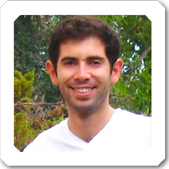
Interview:
Yazir Nauhm-Barrios is from Osorno, Chile and is studying Fire Science Technology and EMS at Truckee Meadows Community College in Reno, Nevada. With his new skills, he hopes to help modernize the emergency system in his own country.
Why did you decide to study in the USA?
I’ve been a volunteer firefighter in Santiago. I’ve served as Lieutenant and am part of the Chilean International Collapse Search and Rescue team. I decided to go one step beyond and get a degree related to emergency services. The fire services system in Chile is based, partly, in the American system; coming to this country is the best option for training.
Why did you choose this college?
TMCC offers a Fire Academy that is essential in order to satisfy the practical requirements. Also, I’m able to combine my Fire Science classes with others from the Emergency Medical Services (EMS) area. My education ends up being more integrated.
What do you like best?
Without a doubt, the chance to learn from instructors with vast experience, and with top-of-the-line infrastructure.
Also important, is that a good student is always rewarded in the U.S., no matter their financial situation or where they come from. Once I started getting good grades, I was awarded in the U.S. and offered different scholarships.
What do you miss most?
I am lucky to come from a country where people are very friendly, it’s easy to make friends and the geography is profoundly beautiful. When I arrived in the U.S., I thought I was going to miss those aspects. I was amazed to realize that this country welcomes foreign students with as much warmth as in Chile. The landscapes are beautiful: the Sierra Nevada with its mountains and Lake Tahoe, turning the landscape into a thing of beauty close to perfection.
What was your biggest surprise?
Without a doubt, what amazes me the most is how independent students are in the U.S. In this country, it is possible to work and have the ability to pay for your own tuition and living expenses without much help from parents. The minimum wage levels available may seem low for many Americans, but they are high when compared to a country like mine.
How have you handled: ... language differences?
I am lucky enough to have learned English and German at an early age. I’ve been able to improve my vocabulary, and luckily, haven’t been unable to understand something or communicate.
… finances?
This is the most complicated aspect of studying abroad. It wouldn’t have been possible without the financial support of my parents and the use of my life savings.
... adjusting to a different educational system?
The American system is different than the Chilean, but it’s not hard to adapt to, because it’s more flexible and efficient. Students can build their own schedule with the classes they want and that fit their degree—it’s great.
What are your activities?
As any good Chilean, I’ve always been a person that enjoys the outdoors. The western part of the U.S. offers me countless reasons not to stay home. I go explore and enjoy the sceneries, hike during summer and ski during winter. When I’m in town, I usually play tennis with friends. Sometimes, my girlfriend and I drive to San Francisco—one of the most romantic cities.
How easy or difficult is making friends?
I think it’s very easy. My cultural background is very similar. I’ve always been a friendly person and was able to make friends easily. Some of them will even become lifelong friends.
How relevant is your U.S. education to your personal goals and to the needs of your country?
My maximum goal is to contribute to the modernization of the emergency management system in Chile. There are learning training methods that I’ve acquired in the U.S., which might be of use to train Chilean Firefighters. A possibility has opened up for me to serve as a firefighter here, and maybe even teach here; that has always been a dream.
What is your advice to other students?
Perseverance. I know that for many, studying abroad, especially in the U.S., is a dream. I consider myself fortunate for having this chance. But luck isn’t everything. It’s very important not to get discouraged and not let all the obstacles, whether financial, language-related or bureaucratic, undermine our dreams. There might be times when you feel uncertain of whether the project is even going to work out. This causes an overwhelmingly demotivating effect. So, take a break, but then carry on, step-by-step. This is a dream that is possible.

























